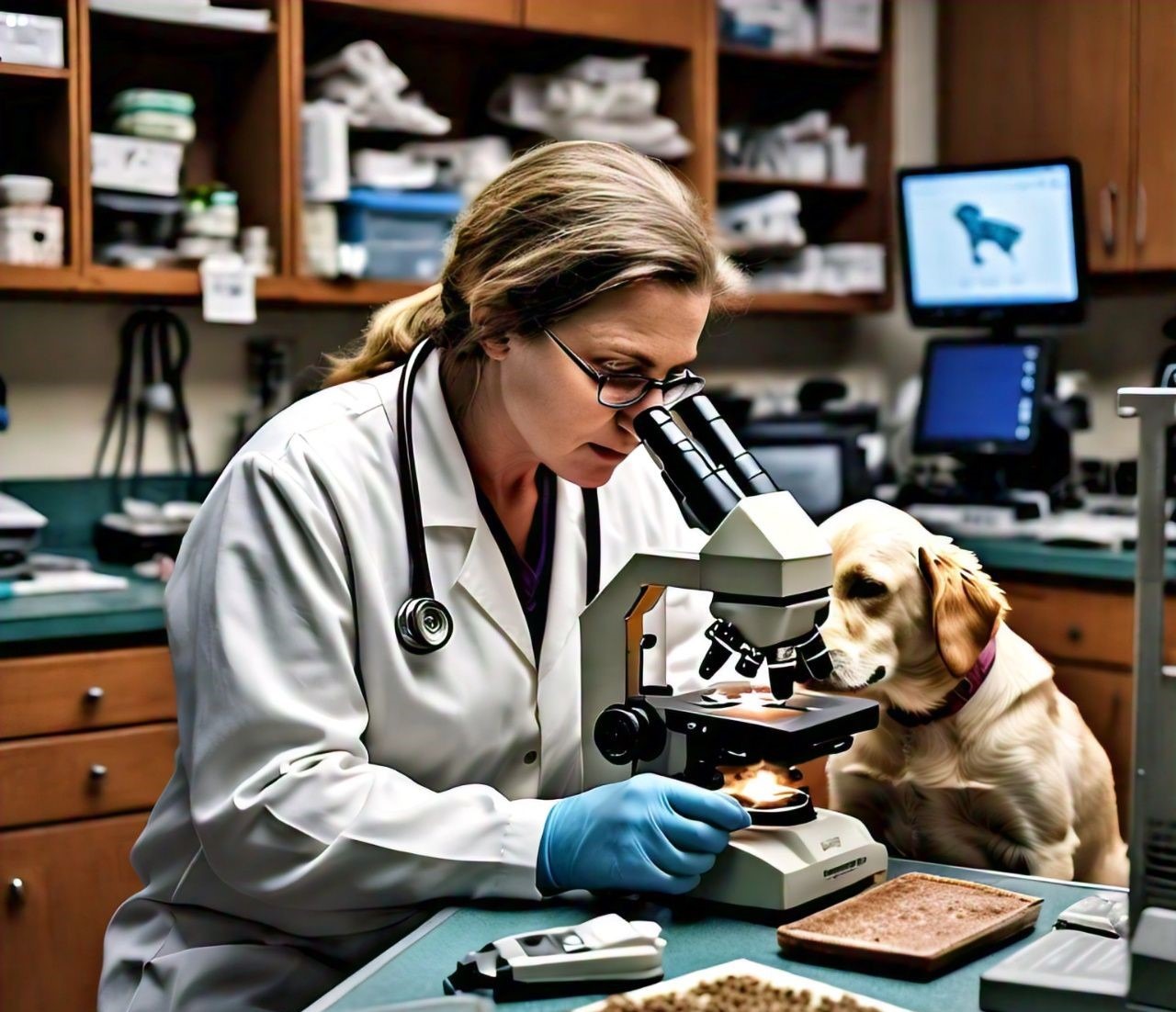- Sinus Infection Ear Pain
- What is a Sinus Infection?
- How Does Sinus Infection Cause Ear Pain?
- Common Treatments for Sinus Infection and Ear Pain
- New Treatments for Sinus Infection and Ear Pain
- Alternative Therapies
- Innovations in Sinus Surgery
- Preventing Sinus Infection and Ear Pain
- When to See a Doctor
- Conclusion
Sinus Infection Ear Pain
Sinus infections, also known as sinusitis, are a common affliction that can lead to various uncomfortable symptoms, including facial pain, headaches, and congestion. However, one of the lesser-known yet highly distressing symptoms associated with sinus infections is ear pain. If you’ve ever experienced that sharp or dull ache in your ears during a sinus infection, you’re not alone. This article will explore the causes of sinus infection ear pain, delve into the various treatments available, including some exciting new options, and provide actionable tips to prevent future occurrences.
What is a Sinus Infection?
Understanding Sinus Infections
A sinus infection, or sinusitis, occurs when the tissue lining the sinuses becomes inflamed or swollen. This inflammation can block the sinuses, trapping mucus inside and leading to discomfort and infection. There are several causes of sinus infections, including:
- Viral Infections: The most common cause, often following a cold or flu.
- Bacterial Infections: Occurs when bacteria grow in the trapped mucus.
- Fungal Infections: More rare, but can affect people with weakened immune systems.
- Allergies: Trigger inflammation, leading to sinus blockage and potential infection.
Sinus infections are characterized by symptoms such as a stuffy nose, thick nasal discharge, facial pain, and pressure around the eyes and forehead. These symptoms can range from mild to severe, impacting daily activities and overall well-being.
Types of Sinus Infections
Sinus infections are categorized into three main types:
- Acute Sinusitis: Lasts for up to 4 weeks and is often caused by the common cold.
- Chronic Sinusitis: Persists for 12 weeks or longer, despite treatment.
- Recurrent Sinusitis: Multiple episodes of acute sinusitis within a year.
Each type requires different approaches to treatment, and understanding which one you’re dealing with can help in selecting the most effective remedies.
How Does Sinus Infection Cause Ear Pain?
The Connection Between Sinuses and Ears
The ears, nose, and throat are intricately connected, which is why an issue in one area can often affect the others. Specifically, the Eustachian tube, a small passageway that connects the middle ear to the back of the nose, plays a crucial role in this connection. When the sinuses become inflamed during a sinus infection, this inflammation can extend to the Eustachian tube, leading to a buildup of pressure in the middle ear. This pressure is what causes the ear pain commonly associated with sinus infections.
Symptoms of Sinus-Related Ear Pain
Sinus infection ear pain can manifest in several ways:
- Ear Pressure: A sensation of fullness or pressure in the ears.
- Hearing Loss: Temporary reduction in hearing due to fluid buildup.
- Earache: Sharp or dull pain in one or both ears.
- Tinnitus: Ringing or buzzing sounds in the ears.
These symptoms can vary in intensity, often becoming more severe as the sinus infection worsens. It’s crucial to address these symptoms early to prevent further complications, such as ear infections or even more severe issues like hearing loss.
Risk Factors
Certain factors can increase the likelihood of experiencing ear pain during a sinus infection. These include:
- Chronic Allergies: Persistent allergies can lead to repeated sinus infections, increasing the risk of ear pain.
- Frequent Colds: Regular exposure to colds can lead to recurrent sinus infections.
- Nasal Polyps: These growths in the nasal passages can block sinus drainage, leading to infections and associated ear pain.
- Smoking: Smoking irritates the respiratory system, increasing the risk of sinus infections.
Understanding these risk factors can help you take preventive measures, reducing the likelihood of developing ear pain during a sinus infection.
Common Treatments for Sinus Infection and Ear Pain
Over-the-Counter Medications
For many people, the first line of defense against sinus infection ear pain is over-the-counter (OTC) medications. These can help alleviate symptoms and make you more comfortable as your body fights the infection. Common OTC treatments include:
- Decongestants: Help reduce nasal congestion and open up the sinuses. However, they should be used cautiously as prolonged use can lead to rebound congestion.
- Antihistamines: Useful if your sinus infection is allergy-related, as they reduce the allergic response.
- Pain Relievers: Medications like ibuprofen or acetaminophen can help reduce pain and inflammation.
While these treatments can provide relief, they do not address the underlying cause of the infection. Therefore, it’s essential to use them as part of a broader treatment plan.
Prescription Medications
In cases where the sinus infection is bacterial or does not improve with OTC medications, prescription treatments may be necessary. These include:
- Antibiotics: Used to treat bacterial sinus infections. It’s important to complete the entire course of antibiotics to prevent resistance.
- Steroid Nasal Sprays: Reduce inflammation in the nasal passages, helping to relieve sinus pressure and ear pain.
These medications are more potent and can effectively address the root cause of the infection, leading to faster and more complete recovery.
Home Remedies and Self-Care
In addition to medications, several home remedies can provide relief from sinus infection ear pain:
- Saline Nasal Irrigation: Using a saline solution to rinse the nasal passages can help clear out mucus and reduce congestion.
- Steam Inhalation: Inhaling steam from a bowl of hot water or a hot shower can help open up the sinuses and relieve pressure.
- Warm Compresses: Applying a warm compress to the ears can help alleviate pain and reduce inflammation.
- Hydration and Rest: Drinking plenty of fluids and getting enough rest are crucial for your body’s ability to fight the infection.
These remedies can be used in conjunction with medical treatments to help speed up recovery and improve comfort.
New Treatments for Sinus Infection and Ear Pain
Innovative Medications
In recent years, new medications have been developed to target the underlying causes of sinus infections and their associated ear pain more effectively. These include:
- Advanced Nasal Sprays: New formulations of nasal sprays containing a combination of steroids and antihistamines are now available. These sprays are designed to reduce inflammation and allergic reactions simultaneously, providing more comprehensive relief.
- New Antibiotics: Recent developments in antibiotics have led to more targeted treatments that can eliminate bacterial infections with fewer side effects.
These innovations in medication are promising, especially for those who suffer from recurrent sinus infections and persistent ear pain.
Balloon Sinuplasty
One of the most exciting new treatments for sinus infection ear pain is balloon sinuplasty. This minimally invasive procedure involves inserting a small balloon into the blocked sinus passages and inflating it to widen the passageways. This allows mucus to drain more effectively, relieving pressure and reducing pain.
- Success Rates: According to clinical studies, balloon sinuplasty has a success rate of over 90% in reducing symptoms of chronic sinusitis, including ear pain.
- Patient Testimonials: Many patients report significant improvements in their quality of life following the procedure, with fewer sinus infections and less ear pain.
Balloon sinuplasty is typically performed on an outpatient basis, with minimal recovery time, making it an attractive option for those with chronic sinus issues.
Eustachian Tube Balloon Dilation
Another innovative treatment is Eustachian tube balloon dilation. This procedure is similar to balloon sinuplasty but focuses on the Eustachian tube, the passageway that connects the middle ear to the back of the nose. By widening the Eustachian tube, this procedure can help alleviate ear pain caused by sinus infections and improve overall ear health.
- How It Works: The procedure involves inserting a small balloon into the Eustachian tube and inflating it to open up the passageway.
- Effectiveness: Studies have shown that this procedure can significantly reduce ear pain and improve hearing in patients with chronic Eustachian tube dysfunction.
This treatment is particularly beneficial for those who experience persistent ear pain and pressure during sinus infections.
Alternative Therapies
For those seeking non-traditional treatments, several alternative therapies have shown promise in relieving sinus infection ear pain:
- Acupuncture: Some studies suggest that acupuncture can help reduce sinus inflammation and relieve ear pain by targeting specific pressure points.
- Essential Oils and Aromatherapy: Certain essential oils, such as eucalyptus and peppermint, have decongestant properties that can help open up the sinuses and relieve ear pain. However, it’s essential to use these oils safely and consult with a healthcare provider before starting any new treatment.
While these alternative therapies may not be suitable for everyone, they can be a valuable addition to a comprehensive treatment plan, particularly for those who prefer natural remedies.
Innovations in Sinus Surgery
For patients with severe or chronic sinus infections that do not respond to other treatments, sinus surgery may be necessary. Recent advancements in sinus surgery have made it less invasive and more effective:
- Endoscopic Sinus Surgery: This procedure involves using a small camera (endoscope) to view the sinus passages and remove blockages. It is less invasive than traditional surgery and has a shorter recovery time.
- Image-Guided Surgery: Advanced imaging technology allows surgeons to navigate the complex anatomy of the sinuses more precisely, reducing the risk of complications and improving outcomes.
Sinus surgery is typically considered a last resort when other treatments have failed, but these innovations make it a more viable option for many patients.
Preventing Sinus Infection and Ear Pain
Tips for Avoiding Sinus Infections
Preventing sinus infections is key to avoiding the discomfort of sinus infection ear pain. Here are some actionable tips to help you reduce the risk:
- Maintain Good Hygiene:
- Wash Hands Regularly: Frequent handwashing is one of the most effective ways to prevent the spread of viruses and bacteria that can cause sinus infections.
- Avoid Touching Your Face: This reduces the likelihood of transferring germs from your hands to your nose and sinuses.
- Manage Allergies:
- Use Allergy Medications: If you suffer from allergies, taking antihistamines or using steroid nasal sprays can help keep your sinuses clear.
- Reduce Allergen Exposure: Minimize exposure to known allergens, such as pollen, dust mites, and pet dander.
- Stay Hydrated:
- Drink Plenty of Water: Staying hydrated helps thin mucus, making it easier for your sinuses to drain properly.
- Use a Humidifier: Adding moisture to the air in your home can prevent your sinuses from drying out and becoming inflamed.
- Practice Good Nasal Care:
- Use Saline Nasal Sprays: These can help keep your nasal passages moist and free of irritants.
- Perform Nasal Irrigation: Rinsing your nasal passages with a saline solution can remove mucus and allergens, reducing the risk of infection.
- Strengthen Your Immune System:
- Eat a Balanced Diet: A diet rich in fruits, vegetables, and whole grains supports a healthy immune system.
- Exercise Regularly: Physical activity boosts your immune system and helps prevent infections.
- Get Enough Sleep: Adequate rest is crucial for maintaining a strong immune response.
- Avoid Smoking and Pollutants:
- Quit Smoking: Smoking irritates the respiratory system and increases the risk of sinus infections.
- Avoid Secondhand Smoke: Exposure to smoke, even secondhand, can lead to sinus inflammation.
- Address Underlying Health Issues:
- Treat Nasal Polyps: If you have nasal polyps, work with your doctor to manage them, as they can block sinus drainage.
- Manage Chronic Conditions: Conditions like asthma or immune system disorders can increase the risk of sinus infections, so keeping these under control is essential.
When to See a Doctor
While many cases of sinus infection ear pain can be managed at home, there are times when it’s important to seek medical attention:
- Persistent Symptoms:
- If your symptoms last more than 10 days or worsen after initially improving, you may need prescription medications or further evaluation.
- Severe Pain or Swelling:
- Intense pain in the face, ears, or head, or swelling around the eyes, could indicate a more serious infection that requires immediate medical care.
- Fever:
- A fever higher than 100.4°F (38°C) that lasts for more than three days could be a sign of a bacterial infection that needs antibiotic treatment.
- Vision Problems:
- Blurred or double vision, or difficulty moving your eyes, could indicate that the infection has spread and needs urgent attention.
- Frequent Infections:
- If you experience frequent sinus infections, it’s important to see a specialist to identify any underlying causes and discuss preventive strategies.
Conclusion
Sinus infection ear pain is a distressing symptom that can significantly impact your quality of life. Understanding the connection between your sinuses and ears, the causes of ear pain, and the available treatments is crucial for managing this condition effectively. Whether you rely on traditional treatments or explore new and innovative options, addressing both the sinus infection and the associated ear pain is essential for a full recovery.
For more information on fitness and health, check out these resources:
Explore more articles on our site:
- How to Increase Running Stamina for Beginners at Home
- What Happens if You Don’t Get Enough Sleep Consistently: Effects and Solutions
- The Ultimate Guide to Healthy Living in 2024
- The Future of Artificial Intelligence: What to Expect
- Unlocking the Potential of Chat GPT Software: Revolutionizing AI Conversations
- Best Sleeping Position for Peripheral Artery Disease [New 2024]
- How to Increase Running Stamina for Beginners at Home
- 5 New Inner Thigh Exercises for Men and Women




